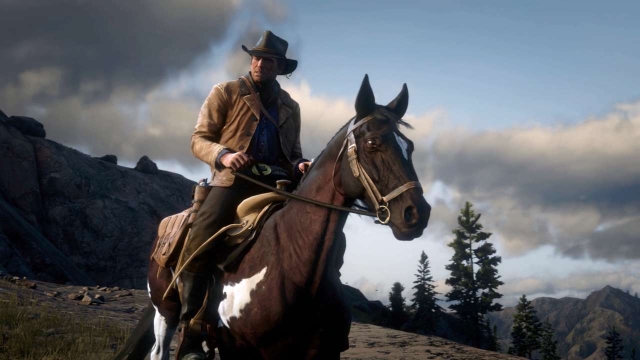Red Dead Online is ahem, online, now. As with GTA Online, however, there are plenty of things to buy with real-world money, one of them appears to be Red Dead Online Horse Insurance. Do you need to buy Horse Insurance on Red Dead Online? What does it do? We answer all of this and more below.
Red Dead Online Horse Insurance – What is it?
Other players can kill you and your horse in Red Dead Online. Horse Insurance makes sure that your horse will be alive and well after being critically injured or worse. Paying for the Horse Insurance will make the game cover the costs of keeping your horse well so you don’t have to. It will recover quickly and regenerate its cores quicker than normal too.
While it sounds good in principle, however, buying Horse Insurance will set you back five Gold Bars, the game’s premium currency for microtransactions. At least, it does according to this ResetEra thread.
Red Dead Online Horse Insurance – Is it Worth it?
While keeping your noble steed alive and kicking might sound like a worthwhile investment, your horse will never die forever in Red Dead Online. The Horse Insurance is simply there to cover the in-game costs of keeping your horse healthy.
If anything “kills” your horse in Red Dead Online, it will simply run back to the stable, waiting for you to pay its vet fees. Its cores, including stamina and health, will also be replenished, meaning you won’t have to twiddle your thumbs while your horse gets up to fighting fit condition.
This is if you haven’t supplied it with a Horse Reviver in time, anyway. If another player kills your horse, they have to pay the vet fee for you, too.
To get your gravely injured, but beloved horse back in Red Dead Online you simply need to pay the vet fees. There are a couple of ways in which you can do this. You can either choose to pay the vet fee via the Player Menu or return to the stable and pay the fee there. Returning to the stable is the cheaper option of the two, however, so we’d recommend you do that.
So no, we’d say that Horse Insurance isn’t really worth the real-world cost as your horse never dies permanently, even if it serves as a potentially useful safety net.







